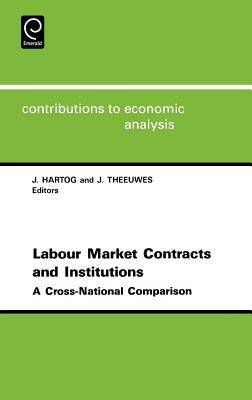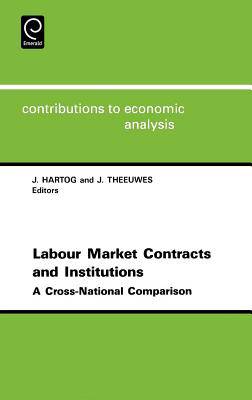
- Afhalen na 1 uur in een winkel met voorraad
- Gratis thuislevering in België vanaf € 30
- Ruim aanbod met 7 miljoen producten
- Afhalen na 1 uur in een winkel met voorraad
- Gratis thuislevering in België vanaf € 30
- Ruim aanbod met 7 miljoen producten
Zoeken
Labor Market Contracts and Institutions
A Cross-National Comparison
€ 310,95
+ 621 punten
Omschrijving
This volume examines new theoretical developments in labour contracts and relates them to the actual content of such contracts, and to differences in labour contracts which depend on the specifics of the institutional environment in which they are negotiated. This study is done from an international perspective, by comparing differences in labour contracts among European countries and between Europe, Japan and the US. The comparison consists of a careful description of selected characteristics of labour contracts and traits of the institutional environment and an explanation of their national emergence. The novelty of the study lies in the integrated approach of practical specification of labour contracts and theoretical analysis based on economic principles of efficiency. Existing contract theory in labour economics is used and extended when necessary to explain the occurrence of certain contract clauses, the division between legal and private arrangements, the role and function of institutions in the labour market and so on.
Specificaties
Betrokkenen
- Uitgeverij:
Inhoud
- Aantal bladzijden:
- 468
- Taal:
- Engels
- Reeks:
- Reeksnummer:
- nr. 218
Eigenschappen
- Productcode (EAN):
- 9780444899279
- Verschijningsdatum:
- 28/04/1993
- Uitvoering:
- Hardcover
- Formaat:
- Genaaid
- Afmetingen:
- 156 mm x 234 mm
- Gewicht:
- 825 g

Alleen bij Standaard Boekhandel
+ 621 punten op je klantenkaart van Standaard Boekhandel
Beoordelingen
We publiceren alleen reviews die voldoen aan de voorwaarden voor reviews. Bekijk onze voorwaarden voor reviews.







